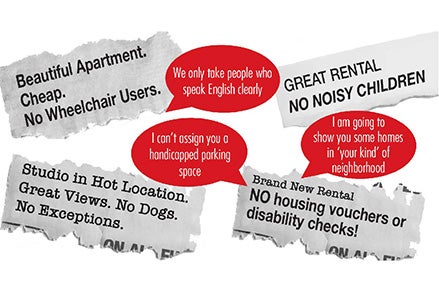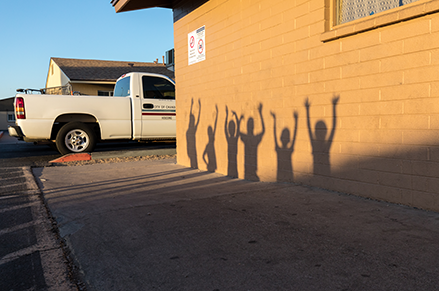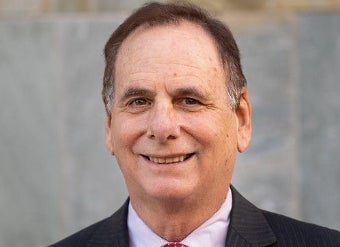
Denying somebody the opportunity to buy or rent a home based on who they are or what they look like may sound like the stuff of history books, but housing discrimination still affects millions of Americans every year.
Under the Federal Fair Housing Act, it is illegal for leasers, sellers, financiers, insurers or agents to discriminate against people based on race, disability, sex, national origin, color, religion or family status. Still, discrimination in the housing market remains an issue that can sometimes be hard to spot.
Which is why the City is working to stop it.
Chandler’s Fair Housing Program is operated by the City’s Neighborhood Resources Department and offers outreach services and education resources for people affected by potential instances of housing discrimination.
“What we are doing is raising awareness within our community to help educate individuals on what the protected classes are, as well as what people should be aware of when they are in search of an apartment or home,” said Karin Bishop, the City’s Community Development and Resources Supervisor.
What is Fair Housing?
The Federal Fair Housing Act prohibits discrimination in the rental, sale, lending, and insuring of housing based on: race, color, national origin, religion, sex, disability or familial status.

The program works to combat both blatant and subtle forms of housing discrimination that can pop up at any point in the home renting or buying process. The examples to the right highlight some of the wording commonly used to discourage people from choosing to live in a particular area or apply for financing.
“I didn’t fully understand housing discrimination until I was put into a place where I needed to look for an apartment while caring for a minor child,” Bishop said. “It opened my eyes to the difficulties facing people in these protected classes.”
Aside from the wording shown, some real-life examples of housing discrimination may include:
being discouraged from applying for an apartment complex because of your small child
being denied a request for a reasonable disability modification
being steered away from buying in certain neighborhoods because of the color of your skin
being rejected from a loan application process because of your native language or national origin
While some of these examples may seem like common occurrences, they may be violations of federal law.
Because of the complex and sensitive nature of housing discrimination, spreading awareness in Chandler oftentimes involves reaching out directly to some of the City’s most vulnerable populations.
Through the program’s efforts, the City is able to spread accurate information and offer residents next steps on what to do if they feel as if they have been discriminated against.
“We’ve heard stories from people in the community about how they wish they had known about their rights sooner because of situations that had happened to them, a family member or a friend,” Bishop said. “Our goal is to educate people on their rights and how they can file a complaint if they feel those rights have been violated.”
Chandler’s Community Development division has trained staff members who can take calls and provide guidance for how to take proper next steps. When further investigation is called for, City staff is also able to guide residents through filing a complaint with the Office of the Arizona Attorney General.
The City of Chandler takes housing discrimination very seriously. If you have questions or suspect that you have been discriminated against in housing, contact the City of Chandler Community Development Fair Housing Line at 480-782-4323.
How Your Census Participation Helps Ensure Fair Housing

These vital services are made possible by block grants from the federal Ofice of Housing and Urban Development, known as Community Development Block Grants, or CDBG. Congress appropriates funds to local governments for various types of community development.
The formula that determines how much funding is distributed to each jurisdiction uses numbers pulled directly from the census — such as a community’s total population and the number of low-income residents.
Participating in the census can help ensure Congress is working off accurate population data when allocating federal funds. Ultimately, an accurate census count can help make sure Chandler receives enough money to assist community members in need.
Get Involved in the 2020 Census
On a national level, census data helps with the allocation of federal funding across 55 programs, including the National School Lunch Program, federal student loan programs and many more.
On a state level, Arizona receives a total of $2,959 from the federal government for every resident counted, from infants to young children to older adults. In total, the state receives more than $20 billion annually for programs directly impacted by the census. The more people counted, the more money each community stands to receive.
Get the answers to frequently asked questions and learn more about how you can participate in the census from iCount2020.



